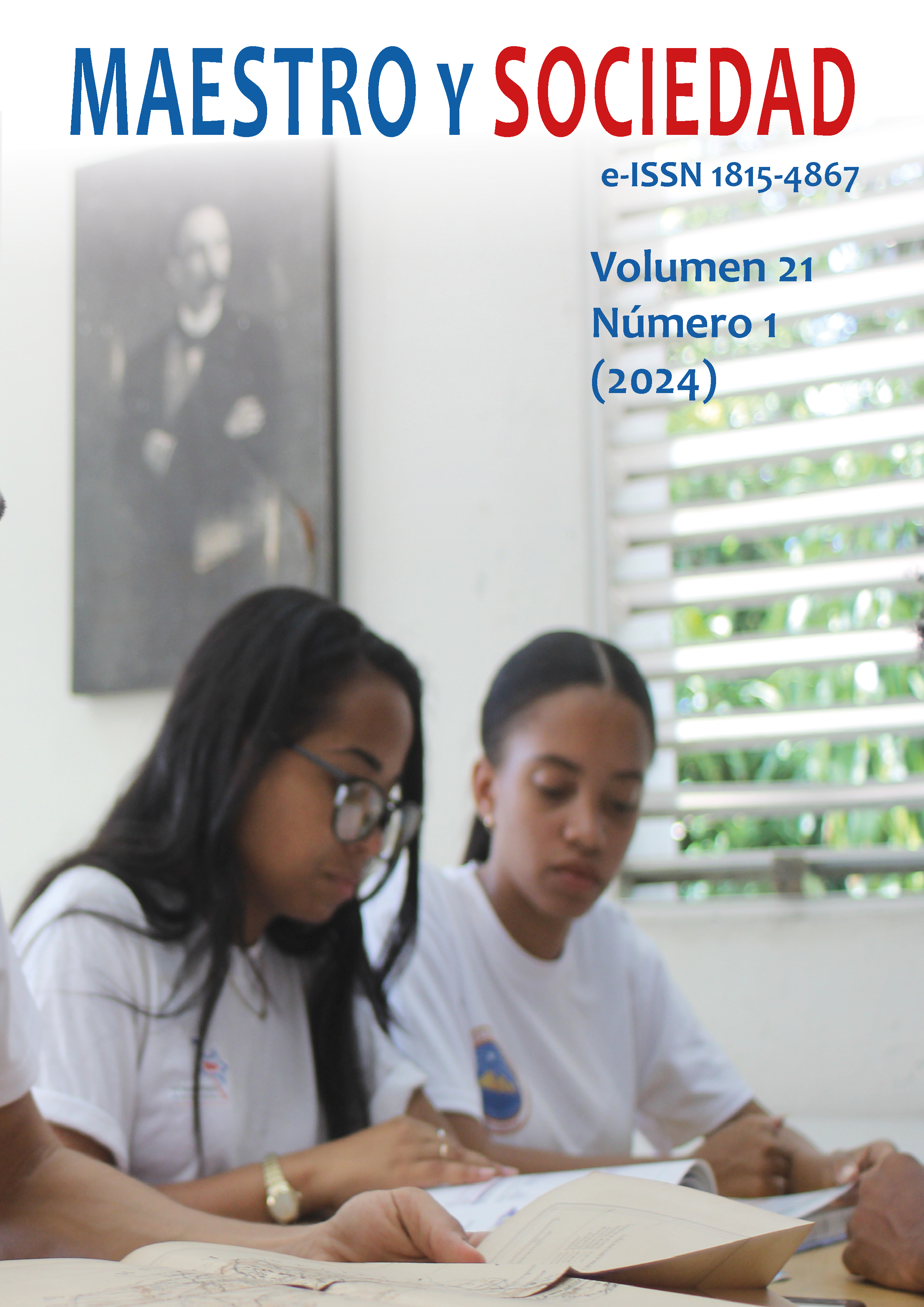Socio-emotional education in the teaching-learning process of the third year of basic education
Keywords:
socioemotional development; learning; competencies; socio-emotional skillsAbstract
The objective of this research is to analyze the importance of socio-emotional education in the teaching-learning process of third-year children of the José Ignacio Ordoñez Educational Unit of the Pelileo canton. To meet this objective, a qualitative methodology was used. quantitative, in the first instance the categories were conceptualized, in addition tables were prepared from statistical data that contributed to the analysis, interpretation and discussion of results. The type of research was applied because it allows us to better understand how emotional and social factors can influence student learning. The technique used was the survey directed at elementary school students and the interview directed at teachers, whose instrument was a questionnaire. The population we worked with was 28 students and 6 teachers. The results obtained demonstrate that socioemotional education plays a fundamental role in the teaching and learning process, since it promotes the comprehensive development of students by addressing their social and emotional skills. This educational dimension recognizes that it is not only about acquiring academic knowledge, but also about cultivating emotional and social competencies that are essential for success in life and building healthy relationships. In this context, the proposal to create effective methodological strategies for socio-emotional education becomes highly relevant and produces great results. These strategies seek to foster emotional awareness, self-regulation, empathy, relationship skills, and responsible decision-making in students.
References
Arroba, G., & Ballesteros, T. (2022). La educación emocional como parte del currículo educativo ecuatoriano. https://recimundo.com/index.php/es/article/view/1881
Baquero Ricardo, & Carretero Mario. (1997). Vigotsky y el aprendizaje escolar. Aique grupo Editor S.A. https://www.terras.edu.ar/biblioteca/6/6PE_Baquero_2_Unidad_2.pdf
Bolaños Álvarez, E. (2020). Educación socioemocional. Controversias y Concurrencias Latinoamericanas, 11(20). https://www.redalyc.org/articulo.oa?id=588663787023
Chiluisa, J. (2023). Educación Ecuatoriana en la actualidad. Modelos pedagógicos de enseñanza. Ciencia Latina Revista Científica Multidisciplinar, 7(3), 1866–1879. https://doi.org/10.37811/cl_rcm.v7i3.6317
Cuadra Martínez, D. J., Salgado Roa, J. A., Lería Dulčić, F. J., & Menares Ossandón, N. D. (2018). Teorías subjetivas en docentes sobre el aprendizaje y desarrollo socioemocional: Un estudio de caso. Revista Educación, 250–271. https://doi.org/10.15517/revedu.v42i2.25659
Diehl, K., & Gómez, R. (2020). Desarrollo Socioemocional Aspectos básicos e implicaciones. The RISE Institute. https://sientoxciento.org/wp-content/uploads/2021/08/Desarrollo-socioemocional-aspectos-basicos-e-implicaciones-2021-Final-diseno.pdf
Domínguez, C. (2021). El clima social en el aula y en el centro educativo: visión del alumnado. Dialnet, 14, 11-36. https://dialnet.unirioja.es/servlet/articulo?codigo=8438110
Estrada, E., y Mamani, H. (2020). Habilidades sociales y clima social escolar en estudiantes de educación básica. Conrado, 16(76), 135–141. http://scielo.sld.cu/scielo.php?script=sci_arttext&pid=S1990-86442020000500135
Gallardo Vázquez, P., Gallardo Basile, F. J., & Gallardo López, J. A. (2021). Desarrollo de las habilidades socioemocionales y de los valores en educación infantil y primaria. Ediciones Octaedro, S.L. https://www.researchgate.net/publication/356731524
García Retana, J. Á., (2012). La educación emocional, su importancia en el proceso de aprendizaje. Revista Educación, 36(1), 1-24. https://www.redalyc.org/articulo.oa?id=44023984007
Goleman, D. (2022). La inteligencia emocional: Por qué es más importante que el cociente intelectual. Penguin Random House, Ed. Editorial México.
Guevara, C. Y., Rugerio, J. P., Hermosillo, A. M. y Corona, L. A. (2020). Aprendizaje socioemocional en preescolar: fundamentos, revisión de investigaciones y propuestas. Revista Electrónica de Investigación Educativa, 22, e26, 1-14. https://doi.org/10.24320/redie.2020.22.e26.2897
Hernández Chirinos de Jesus, R. A., & Silva de Jesus Hernández, F. das C. (2021a). La inteligencia emocional del gestor educativo en tiempos de pandemia. Revista Científica UISRAEL, 8(3), 11–26. https://doi.org/10.35290/rcui.v8n3.2021.446
Ministerio de Educación. (2020). Plan Educativo Ministra de Educación Monserrat Creamer Guillén. www.educacion.gob.ec
Pavas, A. (2022). Educación Socioemocional, una parte fundamental. Universidad Intercontinental - Humanidades. https://www.uic.mx/la-educacion-socioemocional/
Vigotsky, L. (1987). Historia del desarrollo de las funciones psíquicas superiores. Editorial Científico-Técnica.
Published
How to Cite
Issue
Section
License
Copyright (c) 2024 Pamela Lizeth Carrasco Guerra , Isrrael Bryan Piguave Alvarado, Roger Martínez Isaac, Segunda Elena Tolozano Benites

This work is licensed under a Creative Commons Attribution-NonCommercial-NoDerivatives 4.0 International License.
This journal provides immediate open access to its content, based on the principle that offering the public free access to research helps a greater global exchange of knowledge. Each author is responsible for the content of each of their articles.



























 Universidad de Oriente
Universidad de Oriente 